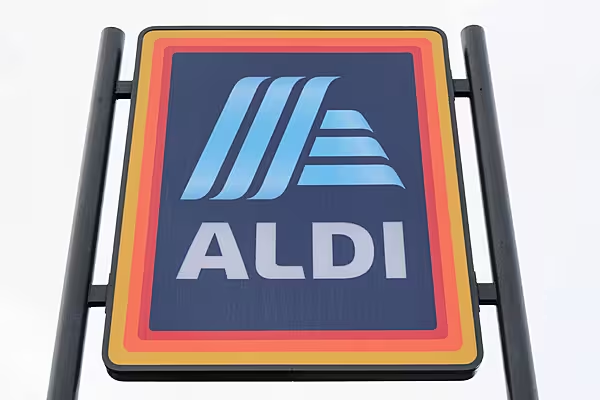The UK arm of German discount supermarket chain Aldi plans to increase investment in the two years to end-2024 to £1.4 billion as it tries to grab more market share from its bigger listed rivals.
Britain's food retailing sector has been transformed in the last decade by the rise of privately owned Aldi and Lidl, which has driven down the returns of the traditional players - market leader Tesco, Sainsbury's, Asda and Morrisons.
Aldi UK is now Britain's fourth largest grocer with a 10.1% market share, and along with Lidl GB its fastest growing.
Aldi UK is also the cheapest supermarket, according to regular surveys from consumer group Which? and industry publication The Grocer.
Further Reductions
The discounter said it had reduced the prices of 650 items so far this year at a cost of £350 million, with further reductions expected in the run up to Christmas as inflation wanes.
The discounters' appeal has grown during a cost of living crisis now into its second year and, unlike their rivals, they continue to open lots of new stores.
Aldi UK said it would invest in expanding its store and distribution networks, in revamping existing stores and in technology, increasing its previous investment pledge for the two years to end-2024 by £100 million.
Earlier, this month it opened its 1,000th store and raised its target to 1,500.
The discounters' performance has forced the other major players to compete more aggressively.
Tesco and Sainsbury's have schemes that match Aldi prices on hundreds of key products, while they have accepted a profit hit to keep prices down. Both say the price gap with Aldi UK has significantly narrowed.
The discounters' profitability has not matched their stellar sales growth, however.
Increased Sales
Aldi UK's 2022 sales rose almost £2 billion to £15.5 billion and its sales were up 17.1% in the 12 weeks to 3 September, according to industry data.
While its operating profit increased to £178.7 million, versus £60.2 million in 2021, this represented a margin of just 1.2%.
Earlier this month, Lidl GB reported a 76 million pound loss for its 2022-23 year.
Both Aldi UK and Lidl GB say their parents, Aldi Sud and the Schwarz Group, are relaxed about current profits because they are focused on the long-term opportunity.
Read More: Waitrose And Aldi Cut More Prices As Britain's Food Inflation Picture Improves
News by Reuters, edited by Donna Ahern, Checkout. For more retail stories, click here. Click subscribe to sign up for the Checkout print edition.





